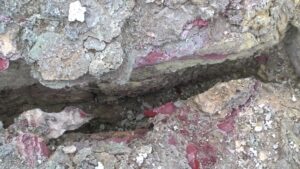29.1.2024
Project will turn phosphogypsum into consumer goods and reduce industrial waste piles
The aim of the FIC-Fighters project is to transform phosphogypsum waste into commercial products through sustainable and circular processes. Through sustainable production or recovery of materials such as sodium sulphate, ammonium sulphate, phosphorus, rare earth elements (REEs), aluminium hydroxide and calcium carbonate, can then be used in products such as paper and laundry detergents.
Professor Ron Zevenhoven and his team at the Laboratory of Process and Systems Engineering at Åbo Akademi University will participate in the project. The Laboratory of Inorganic Chemistry will also participate in the project.

The aim of the project is to study the processing of phosphogypsum from seven case study sites around Europe, demonstrating the sustainable production or recovery of several materials such as sodium sulphate, ammonium sulphate, phosphorus, rare earth elements (REEs), aluminium hydroxide and calcium carbonate, while binding carbon dioxide. These materials can then be used in paper, cement, batteries, wind turbine magnets, fertilizers, detergents, and other applications. Another outcome is the freeing up of valuable land now covered by industrial waste piles. Process technology readiness level (TRL) 6-7 will be demonstrated.
The project involves 28 partners from 13 different countries, 10 of which are in Spain. The project is coordinated by the Spanish company IDENER Research and Development AIE. The total budget for the project is 11,9 million euros of which 10 million is financed by the EU within the Horizon Europe Framework Programme. Åbo Akademi University’s share is 555 000 euros.
The project To Fair, Inclusive, Circular and Healthy cities: Valorisation of phosphogypsum wastes into commercial products through sustainable and circular processes, or FIC-Fighters, runs from 2024 to 2028.
